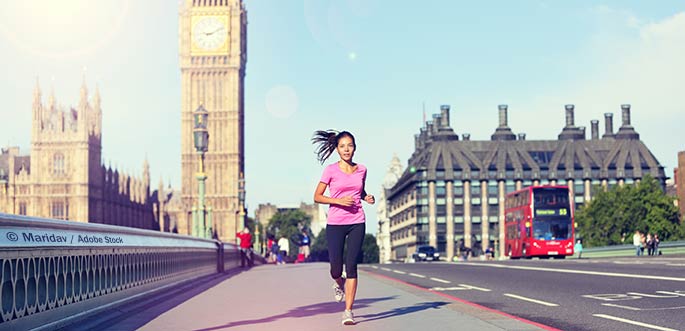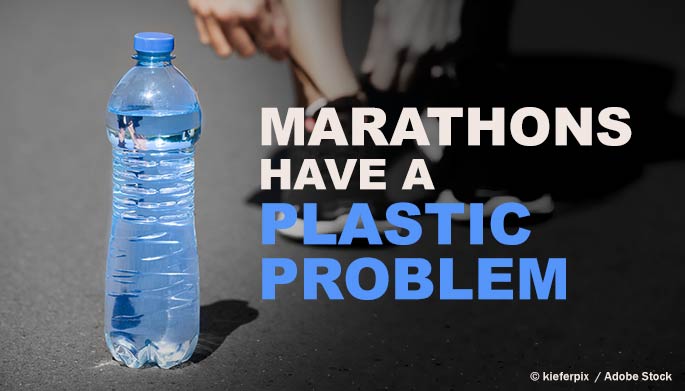With thousands of runners in need of hydration during their 26.2-mile race, water bottles are handed out along the route to be consumed and tossed away as they are finished. The result? An ocean of plastic that can take over 450 years to decompose.
What is the 2019 London Marathon Doing About It?
This April, more than 41,000 runners participated in the 2019 Virgin Money London Marathon. But this year, in response to growing concerns over the environmental impact of the race’s thousands of single-use plastic bottles, marathon organizers provided runners with an alternative method of hydration: water pods made from edible seaweed.
As runners passed mile 23, they were offered Ooho seaweed capsules developed by London-based startup Skipping Rocks Lab. The pods, according to CNN, “can be cheaper to produce than plastic and the thin membrane that forms the pod is edible and tasteless.“ The pod must be bitten to release the liquid within, but if runners were not in the mood to swallow the edible membrane, their discarded pods can decompose in a mere four to six weeks.
The 30,000 pods distributed on Sunday were part of a larger eco-friendly effort by race organizers that saw a reduction in plastic consumption by 215,000 bottles from a whopping 919,000 in 2018. The marathon also swapped in compostable cups for energy drinks and used a closed-loop recycling system for the remaining plastic bottles that were handed to runners and then recycled after the race.
London marks the first marathon to trade plastic water bottles for the edible pods, which can be filled with a variety of liquids and are growing in popularity at music festivals and other events where people are on the move. “Espresso Martinis have been the most popular product at festivals, where eating the packaging is also part of the experience,” Pierre-Yves Paslier, one of the startup’s founders, told CNN.
The London marathon’s introduction of the Ooho pods may set the stage for other major cities such as the sustainability-minded New York and Los Angeles, to follow suit and rise to the challenge. The only question that remains is which city will be the first to cross the finish line with a completely plastic-free marathon?






































































































































 Three Ways to Engage Teams and Clients to Maximize Your Recycling Program Engagement
Three Ways to Engage Teams and Clients to Maximize Your Recycling Program Engagement  How to Integrate Accessibility Into Your Sustainability Planning
How to Integrate Accessibility Into Your Sustainability Planning  Why Park Benches Can Promote Workplace Well-Being
Why Park Benches Can Promote Workplace Well-Being 
